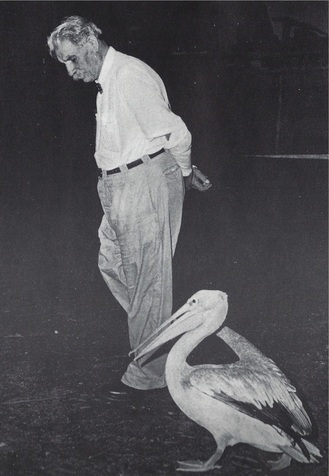
When Dr. Schweitzer was around eight years old, he experienced something one Sunday morning that helped shape his life.
At the urging of a young friend, he reluctantly aimed his slingshot at several birds which, he later wrote, “sang sweetly into the morning sunshine.” Moved, he “made a silent vow to miss. At that moment, the sound of church bells began to mingle with the sunshine and the singing of the birds. For me it was a voice from heaven. I threw aside my slingshot and shooed the birds away, to protect them from my friend’s slingshot and fled home.”[1]
This experience later led him to adopting a philosophy he called “reverence for life.”
“To Schweitzer all life is one: every creature depends on others, and all are entitled to respect and care. Thou shalt not kill is the commandment to men, bidding them sacrifice no living plant or animal needlessly, and even under compulsion of absolute necessity, when duty compels such sacrifice, to respond with sorrow. He carries his philosophy into the life of his hospital, where animals are accorded a place of safety and live in peace with each other.”[2]
Many animals lived in the hospital compound, respected and loved as creatures of God. Dr. Schweitzer was gentle with them all. A pelican followed him around the grounds, as did goats. Ali, a Dutch nurse, took special care of sick animals. An antelope slept in her room with several dogs. Each morning she visited the goat stable for sick call, disinfecting and bandaging wounds.
Even the lives of insects were considered important. A bee is gently caught and released outside. Workers are told to be careful not to harm insects as they dig. Termite-proof wood is used for building posts, so they will not have to be treated with chemicals that would harm insects.
The hens, pigs, or sheep in the village are not killed for food. Fish and crocodile meat are occasionally served at table. But Schweitzer avoids them, saying “I can’t eat anything that was alive anymore.” Even plants were under his protection. He hated to see cut flowers.
[1] Yourdictionary, https://biography.yourdictionary.com/albert-schweitzer
[2] The Schweitzer Album, 1965, Erica Anderson, P. 373
This has been Part 38 of the series A Life Worth Living. Read Part 39 – Controversy
Leave a Reply